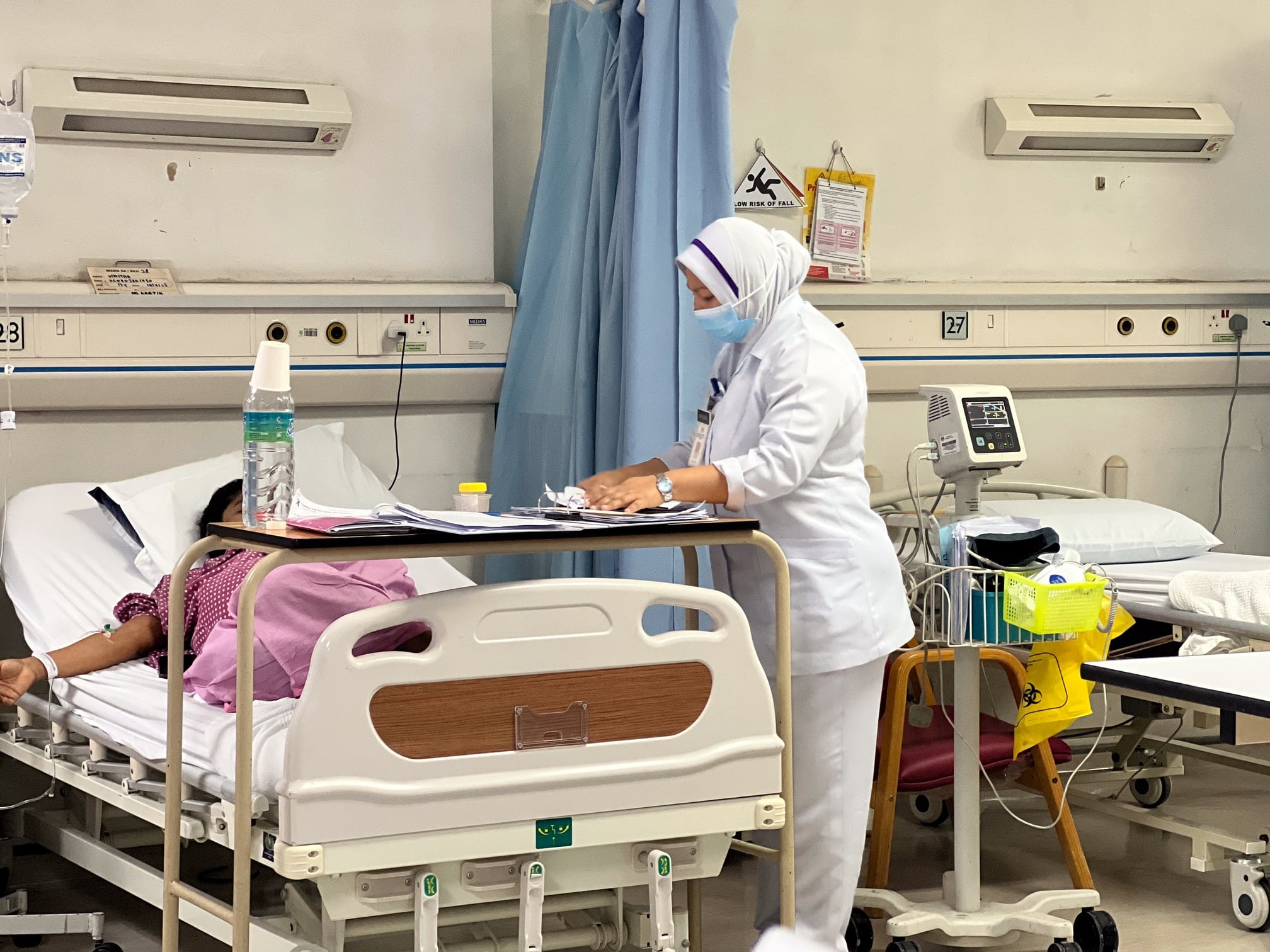KUALA LUMPUR, Oct 2 – The Health Ministry (MOH) has projected a shortage of about 8,000 nurses in Malaysia for 2023 and 2024.
Health Minister Dr Zaliha Mustafa said the number of trainee nurses produced in public and private institutions during these two years will be insufficient, even when accounting for the trainee nurses coming from MOH’s training institutes.
This nursing shortage is a result of a “three-year lag” caused by the Covid-19 pandemic, which severely affected the country’s capacity to train enough nurses, Dr Zaliha said.
The situation led to the government’s decision in September to allow private health care facilities to hire foreign trained nurses from October 1, 2023, to September 30, 2024, with the possibility of extending their service for an additional 12 months.
“We were unable to provide comprehensive nurse training during the three years of the pandemic, which created a three-year gap. Typically, we can train up to 5,000 nurses [per year]. So, the gaps during that period left us with an insufficient number of nurses.
“This is why we are providing some leeway. The Association of Private Hospitals Malaysia (APHM) has indicated that they have a capacity of 1,000 beds to optimise their services, but they can’t find enough nurses. Hence, MOH is allowing this to help them maximise their capacity,” Dr Zaliha said during her policy-level wind-up speech on the 2024 budget.
Opposition leader and former home minister Hamzah Zainudin described the government’s policy of allowing the hiring of foreign nurses for 12 months, with the possibility of extending this permission for another 12 months as “difficult”.
“The government wants to permit the employment of foreign nurses. The condition is to grant permission for 12 months, with the option of extending it for another 12 months. As a former home minister, I can attest that a 12-month term for hiring foreign workers is challenging.
“If the government intends to take on this approach, it should be done properly, perhaps by allowing it once every two years. But it’s okay if the government decides to go with this arrangement because the cost will be quite high,” Hamzah said.
Hamzah, who is Larut MP, also questioned whether the government is considering the recruitment of retired nurses to address the shortage instead of relying on foreign nurses.
“Why don’t we provide an opportunity for those in our country who are dealing with high living costs to come back and help, and extend this opportunity to those who have already retired to return and contribute within those 12 months?
“This approach is preferable to hiring foreign nurses because it offers a win-win solution, benefiting not only those in need of nurses but also skilled Malaysians who can find employment in their previous field,” Hamzah suggested.
Dr Zaliha welcomed the idea of bringing in retired nurses to serve in the national health care system, saying it aligns with the government’s commitment to promoting active living among senior citizens.
Apart from allowing the temporary hiring of foreign nurses in the private sector, other initiatives taken by the government to increase the number of trained nurses in the country include an arrangement with the Higher Education Ministry to lift a moratorium on the opening of new nursing colleges aimed at increasing the production of local nurses.
Dr Zaliha said the annual intake for nursing diplomas, sponsored by the ministry, will also be raised from 1,000 to 2,000 individuals. Additionally, the number of community nurses to undergo training to become skilled nurses through a diploma transition programme will increase from 800 to 1,000 individuals.








